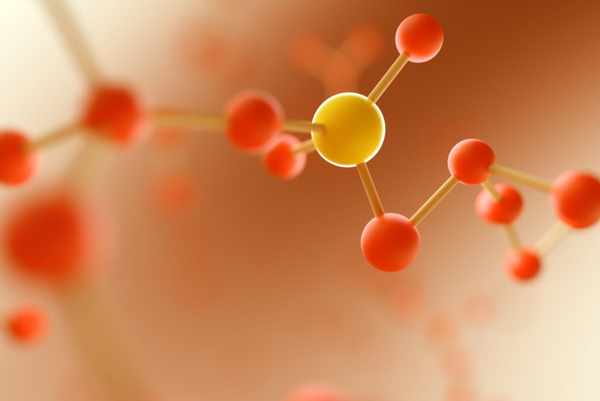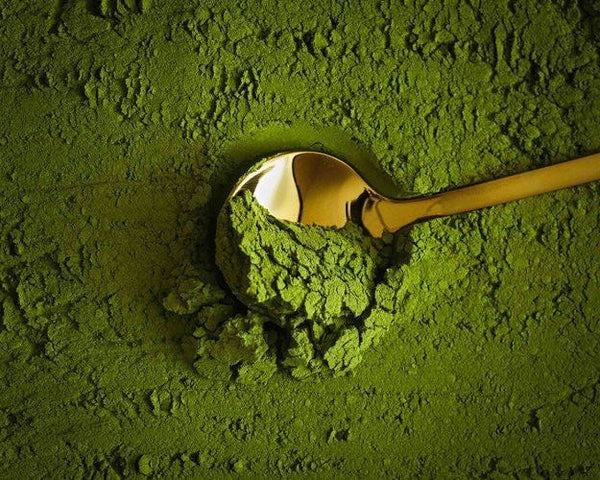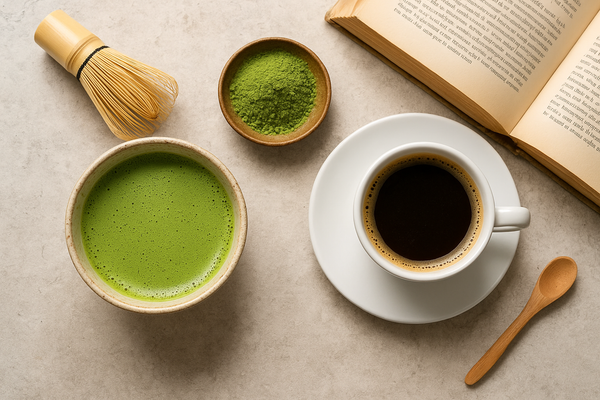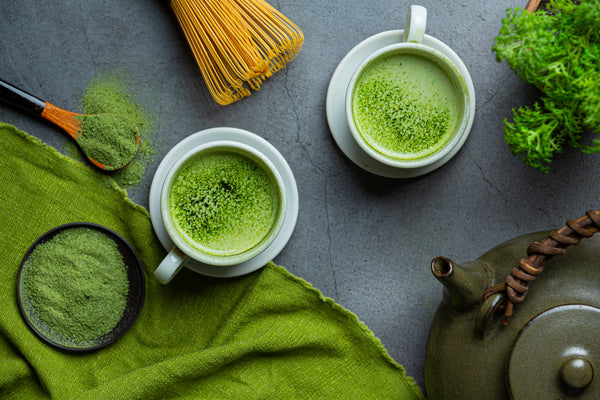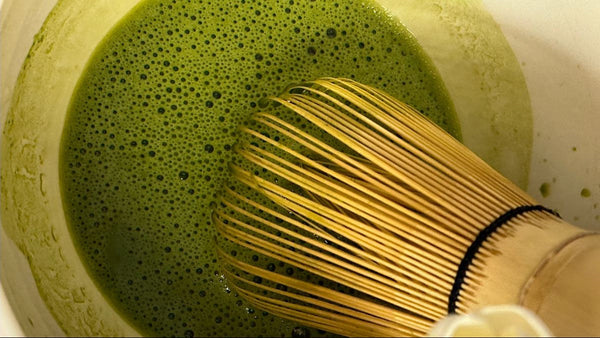Apart from the macronutrients we get from food, our body also requires a list of micronutrients for smooth functioning and to keep us healthy. These micronutrients are not produced in our bodies and need to be derived from our diet or supplements.
If we regularly consume a balanced diet that consists of plenty of fruits, vegetables, whole grains, pulses, and healthy fats and protein, we can meet the requirement without any wholefood multivitamin supplement. But owing to our busy and modern lifestyle, it may not always be possible. Turning to a reliable supplement source may be a good option in this case.
Vitamins are necessary for energy production, immunity, normal cell function, growth, and development. Whereas minerals are important for bone health, healing, and utilization of nutrients in the body.
In this guide, we’ll talk about the important role of vitamins and mineral required for our day-to-day functioning and how can we acquire them.
Here’s a list of vitamins and minerals we require on a daily basis:
- Vitamin A
- Vitamin B Complex
- Vitamin C
- Vitamin D
- Vitamin E
- Vitamin K
- Calcium
- Iodine
- Iron
1. Vitamin A
Vitamin A, most commonly known as retinol, has recently been a hot topic in the skincare industry. It is a fat-soluble Vitamin that is present in a lot of foods and plays an integral part in helping
- the body naturally defend against illness and infection aka keeping the immune system functioning properly,
- keeping skin healthy,
- aiding your vision in the dark.
Fun fact: It is known as retinol owing to the pigment it produces in the retina of the eye.
Sources of Vitamin A
Vitamin A is found in plant as well as animal foods.
For animal sources - beef liver, oily fish, cheese, dairy foods, and eggs are good sources of the vitamin. When it comes to plant-based sources, vegetables containing high levels of beta-carotene are deemed great sources of Vitamin A. Think anything from broccoli, beetroots, and lettuce, to the celebrated carrots. Not only do they improve your night vision, but also help in the conversion of retinol for all your skin needs.
Symptoms of Vitamin A deficiency
- Night blindness
- Dry eyes
- Inflamed, dry skin
- Throat infections
- Delayed growth in children
- Acne and breakouts
In severe forms of Vitamin A deficiency, the cornea can become very dry and contribute to blindness while damaging the retina.
2. Vitamin B and Folic Acid
There is more than one type of Vitamin B. It includes Vitamin B1, B2, B3. B6, B7, B12, pantothenic acid, folate, and folic acid. These Vitamins are essential for
- breaking down carbohydrates
- delivering nutrients to the body.
- help in the formation of red blood cells, in the
- maintenance of healthy skin and brain cells, as well as other vital body tissues.
Every type of B Vitamin has its own function and together they’re all known as Vitamin B complex.
Sources of Vitamin B and folic acid
Animal sources of Vitamin B complex include milk, cheese, eggs, red meat, fish such as tuna and salmon, and even shellfish. For plant-based sources, dark green leafy vegetables like spinach and kale are great sources. Even whole grains, beans like kidney beans and chickpeas, tempeh, and fruits like banana and watermelon are rich in Vitamin B complex. An all-rounder vitamin B12 supplement can also aid in the proper functioning of your body.
Symptoms of Vitamin B deficiency
If you ensure you eat a balanced diet on a daily basis, most of your food will give your body the necessary amount of Vitamin B. But certain medications or diets can make you deficient. Here are the symptoms your body might exhibit in those cases:
- Scaly skin or skin rashes
- Swollen tongue
- Abdominal cramps
- Anemia
- Constipation
- Numbness or tingling in your feet and hands
- Confusion, irritability, or depression
3. Vitamin C
Vitamin C is also known as ascorbic acid and is an important antioxidant in the body. It is necessary for
- the growth, development, and repair of body tissues
- neutralize free radical molecules in the body.
- enhances iron absorption
- Wounds healing
- boosts our immune system.
The body also requires Vitamin C to stimulate the biosynthesis of collagen. Collagen is a vital component in tissues like tendons, ligaments, skin, gut, etc. Vitamin C also helps the body make several hormones and chemical messengers that are used in the brain and nerves.
Sources of Vitamin C
It is common knowledge that all citrus fruits contain sufficient levels of Vitamin C. You can also opt for natural Vitamin C tablets if you aren’t able to meet the requirement through diet alone. Here are a few dietary sources:
- Peppers
- Broccoli
- Brussel sprouts
- Potatoes
- Bell peppers
Symptoms of Vitamin C deficiency
General symptoms of Vitamin C deficiency include:
- Muscle and joint aches
- Unexplained weight loss or gain
- Tiredness and irritability
- Rough, dry skin
- Poor immunity
If the deficiency becomes severe, it may lead to scurvy.
4. Vitamin D
Vitamin D is a fat-soluble vitamin, essential for keeping our bones, teeth, and muscles healthy. This vitamin is divided into two forms - Vitamin D2 (ergocalciferol)and Vitamin D3. ( cholecalciferol)
Vitamin D has the following benefits :
- aids in the regulation of calcium and phosphate in the body.
- controls infections
- reduces inflammation.
- helps in regulating mood and reduce signs of depression.
- Its fat-soluble property also helps it play a role in regulating kidney functioning and treating kidney disease.
Sources of Vitamin D
The best source of Vitamin D is sunlight as the body creates vitamin D from direct exposure to sunlight. However, the timing of the exposure also plays a very important role. In India, sun exposure from 11 am to 2 pm promotes Vitamin D production in the skin.
Natural sources of vitamin D can also be taken via wholefood multivitamin supplements. Here are some other food sources of vitamin D.
- Canned tuna
- Cod liver oil
- Egg yolks
- Mushrooms
- Fortified foods
Symptoms of Vitamin D deficiency
- Lower immunity
- Weaker bones and muscles
- High blood pressure
- Feeling hungrier than usual
- Frequent mood changes
- Constant fatigue
5. Vitamin E
Vitamin E is also another fat-soluble vitamin. It is stored in the fatty tissue and liver and helps
- your body fight damage against free radicals. It also
- helps the body form red blood cells and
- acts like a vasodilator to keep blood from clotting and ensures smoother blood flow.
- Plays a role in helping cells carry out their important functions.
Sources of Vitamin E
Vitamin E is a group of compounds easily found in a wide variety of fatty foods. These include:
- Plant oils like rapeseed, olive oil, sunflower oil, corn oil, wheat germ oil, and soya oil
- Nuts like almonds and peanuts
- Foods like red bell pepper, pumpkin, and spinach
- Fruits like mango, kiwis, and blackberries
Symptoms of Vitamin E deficiency
- Difficulty in walking or muscle coordination
- Visual distortions or disturbances
- Muscle weakness and pain
- General fatigue and low immunity
6. Vitamin K
Vitamin K helps the liver produce proteins that help the blood coagulate. In simple words, it is what helps prevent excessive internal and external bleeding. Most adults get an adequate supply of this vitamin through food and the deficiency is also quite rare. However, Vitamin K deficiency can occur in infants.
Sources of Vitamin K
- Green leafy vegetables like lettuce, cabbage, spinach, and kale
- Cereal grains
- Soybeans and chickpeas
- Green tea
- Vegetable oils
- Some meat and dairy foods like cheese, liver, and eggs
Symptoms of Vitamin K deficiency
Although the deficiency of Vitamin K is rare in adults, it might occur in some people taking medications that block the vitamin’s metabolic functioning. In those cases, here are the symptoms observed:
- Longer time for blood clotting
- Excessive bleeding during menstruation
- Hemorrhaging
Vitamin Toxicity
Vitamin toxicity occurs when there are high levels of a vitamin in the body. It is primarily caused by fat-soluble vitamins like Vitamin A and Vitamin D since they are stored in the body longer than water-soluble vitamins. It can be caused by high doses of supplements or a large intake of highly fortified foods. It can easily be avoided by monitoring your intake of wholefood multivitamin supplements based on the level of deficiency or gaps in your diet.
Calcium
Calcium is widely associated with healthy bones and teeth, but not many know that calcium also plays a role in blood clotting, just like Vitamin K. It also helps in regulating muscle contractions, which include your heartbeat, and regulating nerve functions. It keeps the tissues in our body strong and rigid, allowing normal bodily movement.
Sources of Calcium
- Milk, cheese, and similar dairy foods
- Okra
- Spinach
- Figs
- Soybeans
- Calcium-fortified foods
Symptoms of Calcium deficiency
- Calcium deficiency, known as hypocalcemia, can show up as:
- Muscle cramps
- Numbness and tingling in hands and feet
- Weak and brittle nails
- Confusion of memory loss
- Easy fracturing of bones/weaker bones
Iodine
The body needs the mineral iodine to make thyroid hormones. These hormones further control the body’s metabolism and other important functions. Thyroid hormones are also important for proper bone functioning and brain development during pregnancy. The human body cannot produce iodine therefore it must be consumed via food.
Sources of Iodine
- Sea fish
- Shellfish
- Eggs
- Cow milk and other dairy products
Symptoms of Iodine deficiency
- Swelling of thyroid glands
- Visible lump on your neck
- Thinning hair
- Dry skin
- Feeling colder than usual
- Slowed heart rate
Iron
Iron is an important mineral for the production of red blood cells. RBCs are what carry oxygen to the cells in the body. It helps our muscles store and use oxygen.
Sources of Iron
Iron from food comes in two forms - heme and non-heme
Heme is found in animal flesh like
- Meat and red meat
- Poultry and seafood
Non-heme iron is found in plant-based foods like
- Dried apricot
- Soybean flour
- Kidney beans
- Chickpeas
- Nuts
Symptoms of iron deficiency
- Extreme fatigue
- Lightheadedness
- Pale skin
- Shortness of breath
- Dry and damaged hair and skin
Wrapping up
The sources of various vitamins and minerals can be easily found in nature, however, they could be present in really small quantities than our bodies need. To make sure we get the right amount of nutrients, a healthy balance of organic, nature-based sources along with clean supplements is a good way to go!













